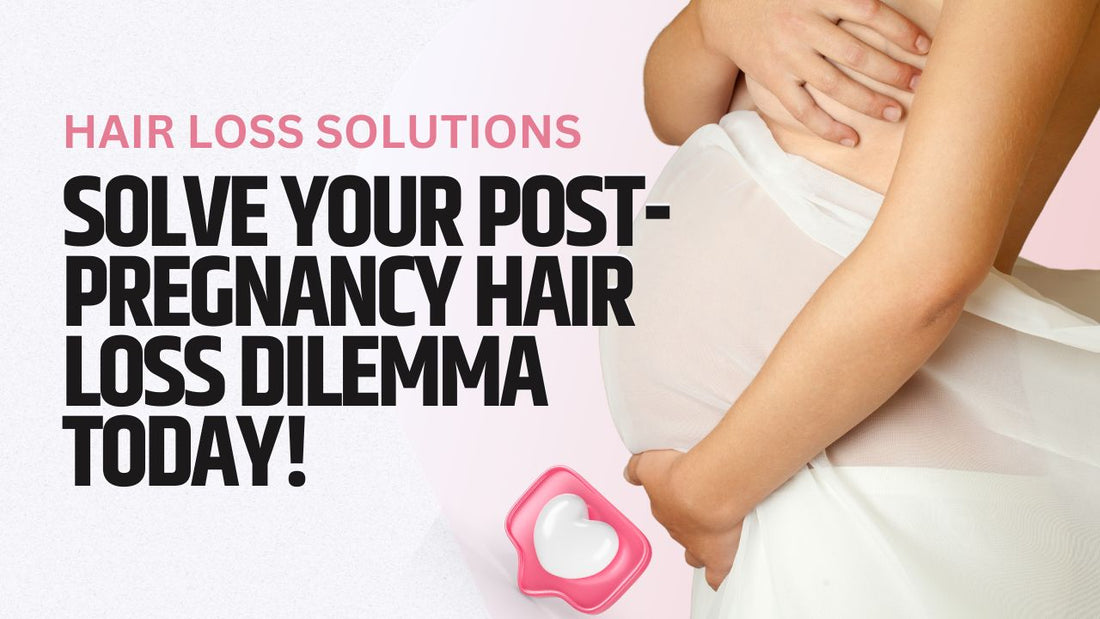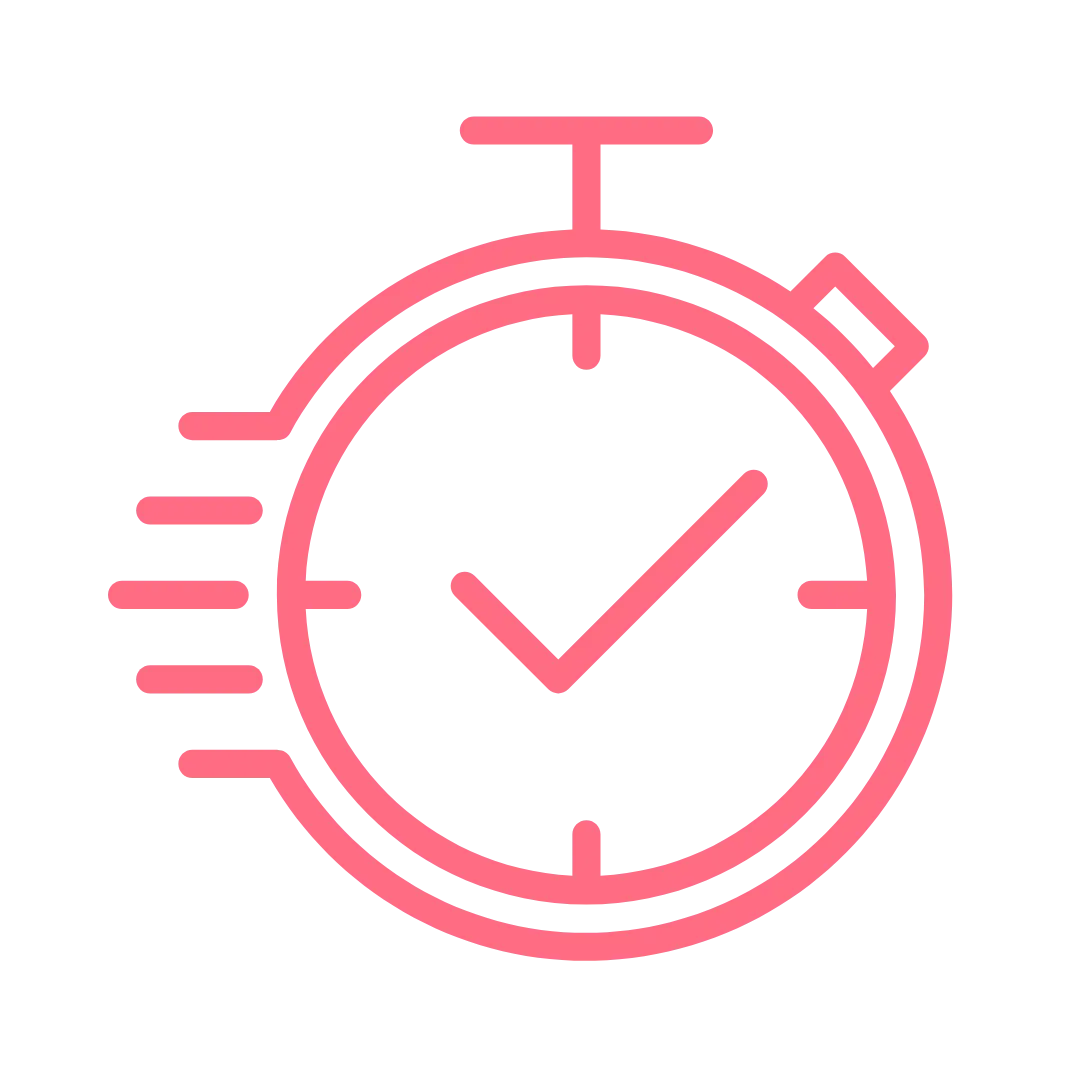
No More Shedding Tears: Solve Your Post-Pregnancy Hair Loss Dilemma Today!
Share
Welcoming a new baby into the world is an incredibly joyous occasion, filled with love, warmth, and hope. However, the aftermath of childbirth brings with it various physical changes, one of the most notable being post-pregnancy hair loss. As alarming as it may sound, understanding its causes and knowing the right solutions can make all the difference. So, let's embark on this journey to unravel the mystery behind post-pregnancy hair loss and the available remedies to combat it.

Understanding Post-Pregnancy Hair Loss
The very first step in addressing post-pregnancy hair loss is to understand what causes it.
The Science Behind It: Hormonal Changes
Pregnancy is a rollercoaster of hormonal fluctuations. During this phase, there's a surge in estrogen levels, which results in hair remaining in the growing phase for an extended period. The outcome? Thicker, more lustrous locks that many women cherish during their pregnancy. However, post-childbirth, these elevated estrogen levels drop dramatically, causing more hair than usual to enter the shedding phase. It's this sudden transition that leads to noticeable hair thinning or even clumps of hair falling out.

Common Symptoms and What to Expect
While hair loss can be distressing, it's crucial to remember that it's a common occurrence for many new mothers. Typically, postpartum hair loss manifests around three to four months after delivery. Some women may observe a few extra strands on their brush, while others might experience more substantial hair shedding, especially while shampooing or styling. This phase can last up to a year, but for most, the hair cycle starts normalizing around the six-month mark.

Why It's a Normal Part of the Postpartum Experience
Post-pregnancy hair loss, medically termed telogen effluvium, is not a sign of a health issue or deficiency. It's merely the body's response to a significant physiological event – childbirth. Our hair has a natural growth and shedding cycle, and the sudden hormonal shifts post-pregnancy cause a temporary disruption in this cycle. While it might seem overwhelming, understanding that it's a common and natural process can provide solace.
Factors Influencing Hair Loss After Pregnancy
With a clearer grasp on the science behind post-pregnancy hair loss, let's delve into the factors that can influence its severity.
Genetics: Family History of Postpartum Hair Loss
Just as with many other traits, if your mother or grandmother experienced significant hair loss after giving birth, chances are you might too. Genetics play a pivotal role in determining the magnitude of hair shedding you might encounter.
Stress Levels and Mental Well-being
The joy of holding your newborn is incomparable, but it's also paired with sleepless nights, adjusting to a new routine, and sometimes the baby blues. Stress can exacerbate hair loss. It's vital to find moments of calm, seek support when needed, and ensure you're mentally and emotionally well.

Nutritional Deficiencies
While hormonal changes are the primary culprits behind post-pregnancy hair loss, nutritional deficiencies can accentuate it. Pregnancy takes a toll on the body's nutrients, as they're now shared with the growing fetus. Ensuring a balanced diet rich in essential vitamins and minerals post-delivery can help in minimizing hair loss.

Solutions and Treatments: Combating Post-Pregnancy Hair Loss
While the phenomenon of post-pregnancy hair loss might seem daunting, it's heartening to know that there are several effective solutions and treatments available.
Choosing the Right Hair Care Regimen
Switching up your hair care routine can significantly alleviate postpartum hair loss. Consider using a gentle, sulfate-free shampoo that won't strip your hair of its natural oils. Pair this with a nourishing conditioner that strengthens your strands, reducing breakage. Additionally, avoiding heat styling tools and tight hairstyles can minimize hair stress.

Proactive Rosemary Hair Booster Oil: The Game Changer
One of the breakthrough solutions in combating hair loss is the Proactive Rosemary Hair Booster Oil. This potent blend harnesses the natural power of rosemary, renowned for its ability to stimulate hair follicles and enhance hair growth.
Why it Works:
- Rosemary's Natural Properties: Rosemary oil increases cellular metabolism in hair follicles, promoting hair growth. It also helps in reducing dandruff, a common postpartum concern.
- Improved Scalp Circulation: The oil boosts blood circulation to the scalp, ensuring hair follicles get the necessary nutrients.
- Strengthens Hair: The nourishing properties of this oil fortify hair from root to tip, reducing breakage and thinning.
How to Use:
Massage the Proactive Rosemary Hair Booster Oil into your scalp and hair 2-3 times a week. Let it sit for at least 30 minutes before washing. For optimal results, consider leaving it on overnight.
Dietary and Nutritional Supplements
Ensuring you're consuming a balanced diet rich in essential vitamins and minerals is paramount. Iron, vitamin E, biotin, and zinc are vital for hair health. If you're unable to derive these nutrients from your diet, consult your physician about supplements.
Hair Growth Shampoos and Topical Treatments
There's an array of specialized shampoos and topical treatments available that promise to reduce hair loss and promote growth. While choosing, look for products with natural ingredients like biotin, keratin, and amino acids.
Embracing a Holistic Approach: Beyond Hair Products
Understanding the broader scope of post-pregnancy hair loss involves addressing not just the physical, but also the emotional and mental aspects of the situation. It's not merely about the hair falling out; it's about regaining the sense of self, esteem, and confidence.
Holistic Hair Health
- Stay Hydrated: Drinking ample water daily keeps hair hydrated from the inside out, promoting shine and health.
- Scalp Massages: Regular scalp massages, whether with the Proactive Rosemary Hair Booster Oil or without, can stimulate hair follicles and improve blood circulation, fostering growth.
- Stress Management: Stress can exacerbate hair loss. Consider techniques like meditation, yoga, or even short daily walks to mitigate stress.
Emotional Support and Community
Joining a postpartum support group, either in person or online, can be immensely beneficial. Sharing experiences and hearing others' stories provides perspective and fosters a sense of belonging.
Consult a Dermatologist or Trichologist
If your hair loss seems excessive or doesn't show signs of slowing down after several months, it might be wise to consult with a dermatologist or trichologist. They can provide insights specific to your situation and recommend treatments.

Conclusion: Rediscovering Your Crowning Glory
Post-pregnancy hair loss, while common and natural, can be a jarring experience for many. However, with the right knowledge, products, and support, you can navigate this phase with confidence. Remember, it's a temporary setback, and with a blend of patience and proactive care, you'll soon see a return to the luscious locks you love.
FAQ Section
Q: How long does post-pregnancy hair loss typically last?
A: For most women, it lasts between 3 to 6 months post-delivery. However, everyone is different, and some might experience it a bit longer.
Q: Can I prevent post-pregnancy hair loss?
A: While you can't entirely prevent it due to hormonal fluctuations, certain treatments and care routines can minimize its severity.
Q: How often should I use Proactive Rosemary Hair Booster Oil?
A: For optimal results, massage the oil into your scalp and hair 2-3 times a week
Q: Are there any side effects of the treatments mentioned?
A: Always consult with a professional before starting any treatment. Natural solutions like the Proactive Rosemary Hair Booster Oil typically have fewer side effects, but it's essential to do a patch test first.
With the right approach and a supportive community, overcoming the challenge of post-pregnancy hair loss is well within reach. Embrace this journey with optimism, and remember, you're not alone in this.

















